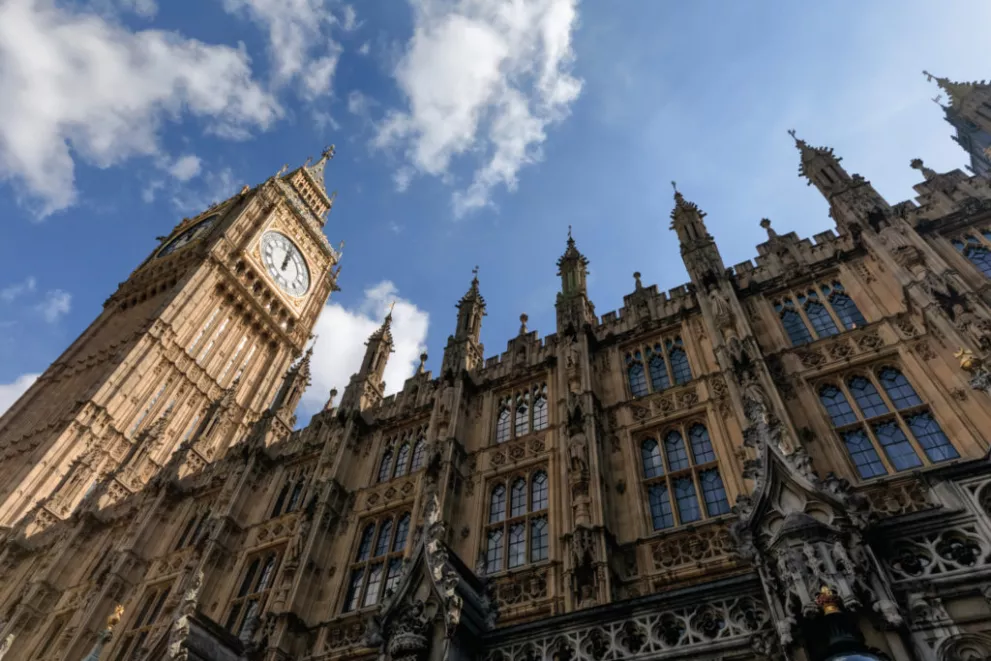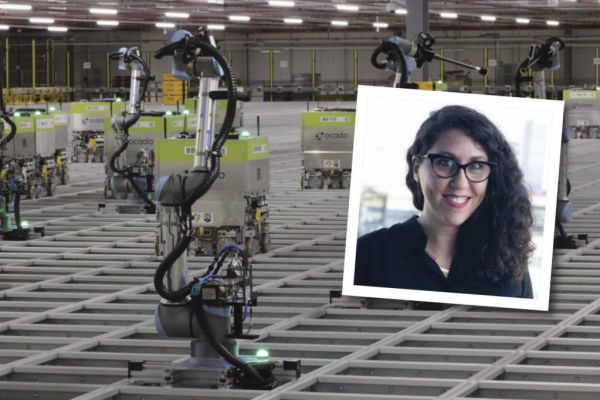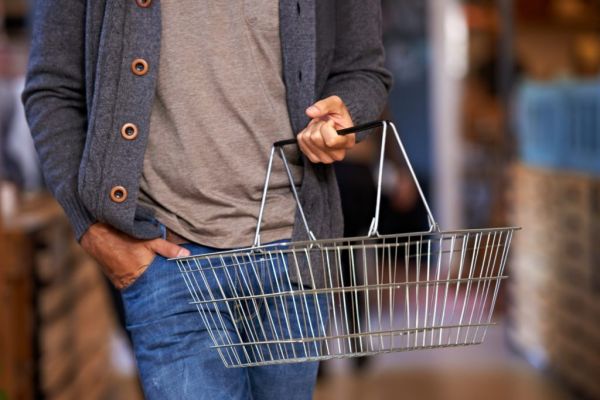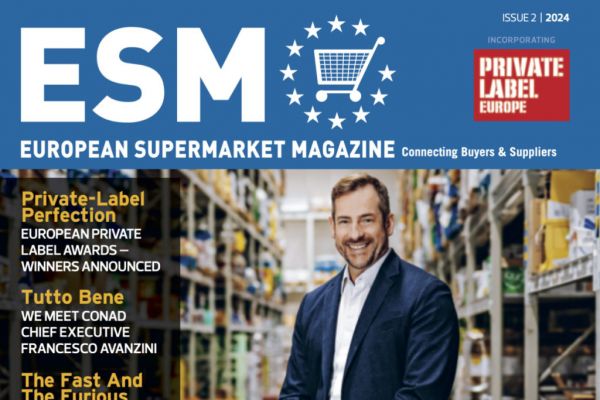In the run up to Christmas 2018, ESM is proud to present a recap of some of our biggest articles of the year, exclusively for Premium website subscribers. Earlier this year, we met the Rt. Hon. Lord Mark Price, one of the UK's most respected businessmen, to discuss the retail landscape post-Brexit. This article first appeared in ESM Issue 2 2018.
Two years on from his departure from upmarket UK retailer Waitrose, Mark Price, or the Rt. Hon. Lord Price, as he has been known since his election to the House of Lords in 2016, remains a much-respected figurehead for UK business.
Last September, the 57-year-old stepped down from the role of Minister of State for Trade, after an 18-month spell that was more eventful than anticipated (the Brexit vote occurred just four months into his tenure), yet he remains a powerful advocate for the UK business sector as it enters one of the most challenging periods in its history.
He’s also an accomplished author, having recently released Fairness for All, a treatise on the concept of ‘inclusive capitalism’, and Workplace Fables, a compendium of 147 true-life stories compiled from more than thirty years in the business world.
Both books close with a poem, The Machine, which envisages a workplace system at its most barbarous [Sample verse: ‘The machine doesn’t trust/The machine gives orders but doesn’t explain/The machine talks to you, but you can’t talk to it’]. A chilling thought in this Brexit-obsessed, Trumpian world of ours.
“The machine is my euphemism for capitalism – that it is ever more demanding and requires increasing efficiency,” Price explains. “If it’s unconstrained, then it doesn’t care about the consequences.”
Responding To New Realities
Indeed, Fairness for All, as the title suggests, was written in response to the Occupy protests that took place in London in 2011, which called attention to the increasing polarisation within capitalist societies, as well as an understanding that something had ‘gone awry’ with big business.
“Of course I believe in capitalism; as trade minister I travelled the world, to countries like China and Vietnam, and it’s clear that they see the capitalist model is best placed to lift people out of poverty,” he says. “However, I’m also aware that the model creates winners and losers.”
As Fairness For All discusses, there is an increasing awareness among business leaders that another way is possible.
“Look at Warren Buffett or Paul Polman,” says Price. “There’s a growing group of business leaders that are more thoughtful about investing – yes, they see the commercial advantage, but they also realise that big business has got to do more than just produce profits for its shareholders,” says Price.
“Whether business likes it or not, it will have to pay more heed to how people feel about the way it acts. You see the call going out to stop plastic going into the oceans. You’re starting to see people coming out and saying ‘the system isn’t fair’. What will be interesting to see is how business responds to that.”
Tailor The Offer
At the same time, business needs to ensure it stays relevant in the eyes of an increasingly discretionary consumer base, Price argues.
He courted some controversy in January when, on the back of poor Christmas trading results from the likes of Debenhams and House of Fraser, he suggested that many UK retailers’ offer was “fundamentally flawed” – many simply cannot compete with the likes of Amazon in terms of range, with Lidl or Aldi in terms of price, or with top end retailers in terms of service.
“In the old days,” he told the Sunday Times, “people would say: ‘We want to go to only one place, and if there’s something there we’ll buy it’. And what we’ve seen over the course of time is those mid-market retailers edit and edit their assortment until they become a variety store of nothing.”
So, do today’s retailers really understand their shoppers needs?
“If you have a department store with lots of departments, it doesn’t mean you will be successful – each department has to be market leading of its own right,” Price tells ESM. “Being ‘in the middle’ isn’t necessarily the issue; [fashion retailer] Next is in the middle market and does a fantastic job. Why? Because the quality and price is right. They don’t try to be cheap; they know who their customers are and they try to cater for them.”
Indeed, the book Workplace Fables is full of best-practice examples of this; one fable, The Fretting Manager and the Reports, pictures a boss running his business by studying financial reports alone; it is only when he ventures to the shop floor that he realises just where things are going [badly] wrong.
“There are still, sadly, a lot of businesses that operate like that,” Price explains. “Retail is a ‘here and now’ business, it’s not a business which is run by reading yesterday’s reports.”
He cites “great retailers” of the past, like Feargal Quinn of Ireland-based Superquinn and Lord Sainsbury of the eponymous UK chain, as having the ability to balance both the office-based bureaucracy and the ground-level thinking that make a successful retail operation.
“When Sainsbury’s was in its pomp, they used to say that Lord Sainsbury would know if a fly landed on a ham in their York supermarket,” he says.
“You have to engage your entire workforce – you have to make every employee care when there’s no milk, or when a customer can’t buy what they want, or when there’s a long queue at the checkout. The best businesses maintain that leadership link right throughout the workforce.”

The Customer Is Not Always Right
Indeed, another fable suggests that the old adage that the ‘customer is always right’ shouldn’t be taken too literally. The tale of the Naive New MD and the Customer-Centric Business speaks of a business that continuously alters its offer to cater to its customers’ whims, so much so that its most loyal shoppers no longer understand what it stands for.
“It goes back to that great quote from Henry Ford; ‘if you ask customers what they want, they’ll say faster horses’,” Price explains. “Customers will say that they ‘want better quality’, or they ‘want better service’ - but what exactly do they mean by that? A clever approach is for retailers to think about what the customer wants, before the customer even knows they want it.”
Price cites the introduction of a free tea or coffee for MyWaitrose loyalty card holders as a good example of how his former employer was able to embolden its already-strong loyalty levels, at a fraction of the cost.
“What’s the first thing that happens when someone comes to your home?’,” he says. “You offer them a tea or coffee. By offering our most loyal customers a free coffee, we were able to make people feel really welcome at the cost of, maybe, 20 pence per shopper. How many cups of coffee would you be able to give away for the same price as an ad in the Daily Mail, for example?
“A strong belief that I’ve always held is that the customers you’ve got are more important that the customers you are going to get.”
The Macro Picture
As both a former government minister and longstanding business leader, Price has a better understanding than most as to when government should keep its nose out of business affairs, and when it has a role to play.
“My view is that government has a role to play in negotiating multilateral trade deals and bilateral trade deals – looking for ways to improve regulatory harmonisation and making the customs process smooth,” he explains. “There are areas in which the government can be useful in facilitating exports, for example.”
And as for the elephant in the room itself, Brexit? Depending on who you talk to, British firms will likely need all the help they can get once Great Britain exits the European Union, to say nothing of the short term vagaries of the UK economy. As we near closer to March 29, 2019, the anticipated exit date, Price is bullish that the UK will end up with a fair, honest, free trade agreement – it’s in nobody’s best interest for the EU or UK to embrace an alternative.
“I believe the UK will end up with a comprehensive trade agreement,” he says. “What people are trying to push at the moment are hypotheticals, which are not very helpful.”
As he explains, the UK is currently running a trade deficit with the EU of £60 billion, of which around £10 billion is food. “Therefore it’s not in Europe’s best interest that they impose restrictions on the movement of food from, say, Ireland, where food exports to Britain are particularly important, or even France, which only runs a food surplus with three or four countries, of which the UK is one of them, of around £3 billion.
“European trade ministers are fully aware of the fact that starting to impose tariffs on food in the UK would not be in their best interests, given that Europe is such a huge exporter to the UK.”
If, as he suggests, tariffs are therefore out of the equation, the debate turns to things like health and safety checks; with the UK boasting “some of the most stringent quality checks in the world”, he adds. “If that is the case, and the UK continues to have a sensible policy in terms of regulation, you start to sit back and realise - yes, we can find a pragmatic way of getting through this.”
For more information on Workplace Fables, or to order a copy, visit www.workplacefables.com
© 2018 European Supermarket Magazine – your source for the latest retail news. Article by Stephen Wynne-Jones. Click subscribe to sign up to ESM: The European Supermarket Magazine.














